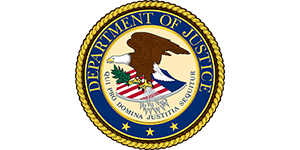Join us for a free one-day workshop for educators at the Japanese American National Museum, hosted by the USC U.S.-China Institute and the National Consortium for Teaching about Asia. This workshop will include a guided tour of the beloved exhibition Common Ground: The Heart of Community, slated to close permanently in January 2025. Following the tour, learn strategies for engaging students in the primary source artifacts, images, and documents found in JANM’s vast collection and discover classroom-ready resources to support teaching and learning about the Japanese American experience.
espionage
Matthew Olsen, Countering Nation-State Threats, February 23, 2022

The head of the U.S. Department of Justice's National Security Division, Matthew Olsen, spoke on February 23, 2022. While emphasizing the size and persistence of the threat of the Chinese government, Olsen also announced the Department was ending its China Initiative. Then Attorney General Jeff Sessions announced the initiative on November 1, 2018. Olsen spoke at George Mason University.
U.S.-China Economic and Security Review Commission, "Hearing on Commercial Cyber Espionage and Barriers to Digital Trade in China (Webcast)," June 15, 2015
This hearing was conducted by the U.S.-China Economic and Security Review Commission on June 15, 2015. The U.S.-China Economic and Security Review Commission was created by the U.S. Congress in 2000 to monitor, investigate, and submit to Congress an annual report on the national security implications of the economic relationship between the United States and the People’s Republic of China.
U.S.-China Economic and Security Review Commission, "Roundtable: U.S.-China Cybersecurity Issues," July 11, 2013
This roundtable was conducted by the U.S.-China Economic and Security Review Commission on July 11, 2013. The U.S.-China Economic and Security Review Commission was created by the U.S. Congress in 2000 to monitor, investigate, and submit to Congress an annual report on the national security implications of the economic relationship between the United States and the People’s Republic of China.
U.S. House of Representatives Intelligence Committee, “Investigative Report on the U.S. National Security Issues Posed by Chinese Telecommunications Companies Huawei and ZTE,” October 8, 2012
The House Committee is headed by Chairman Mike Rogers (R-Michigan) and Ranking Member C.A. Dutch Ruppersberger (D-Maryland).
U.S. Office of the National Counterintelligence Executive, "Foreign Spies Stealing U.S. Economic Secrets in Cyberspace," released Nov. 3, 2011
Report written by U.S. Office of the National Counterintelligence Executive. Full report available at the link below.
Central Intelligence Agency, Two CIA Prisoners in China, 2006 and 2010
This article and documentary tells the story John T. Downey and Richard G. Fecteau. Both men were CIA officers who were captured, imprisoned, and eventually released from a Beijing prison.
Testimony of Larry M. Wortzel Before the Subcommittee on Crime, Terrorism, and Homeland Security, 2008.
Hearing on “Enforcement of Federal Espionage Laws”
The Cox Report and the US - China Arms Control Technical Exchange Program, 1999
This document was prepared as an account of work sponsored by an agency of the United States Government. Neither the United States Government nor the University of California nor any of their employees, makes any warranty, express or implied, or assumes any legal liability or responsibility for the accuracy, completeness, or usefulness of any information, apparatus, product, or process disclosed, or represents that its use would not infringe privately owned rights.
Cox Report, 1999
The Report of the Select Committee on U.S. National Security and Military/Commercial Concerns with the People's Republic of China, commonly known as the Cox Report, is a U.S. government document reporting on the People's Republic of China's covert operations within the United States during the 1980s and 1990s.
The Art of China Watching
Document was declassified and made public in the mid 1990s.
Pages
Featured Articles
Please join us for the Grad Mixer! Hosted by USC Annenberg Office of International Affairs, Enjoy food, drink and conversation with fellow students across USC Annenberg. Graduate students from any field are welcome to join, so it is a great opportunity to meet fellow students with IR/foreign policy-related research topics and interests.
RSVP link: https://forms.gle/1zer188RE9dCS6Ho6
Events
Hosted by USC Annenberg Office of International Affairs, enjoy food, drink and conversation with fellow international students.
Join us for an in-person conversation on Thursday, November 7th at 4pm with author David M. Lampton as he discusses his new book, Living U.S.-China Relations: From Cold War to Cold War. The book examines the history of U.S.-China relations across eight U.S. presidential administrations.




